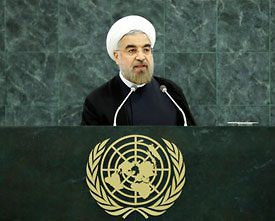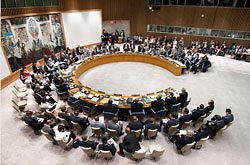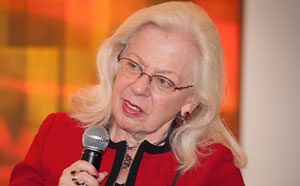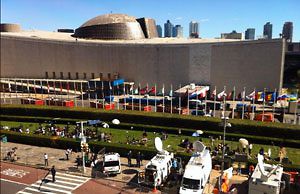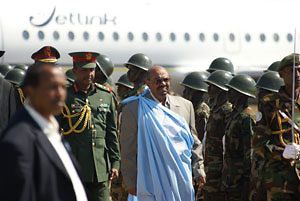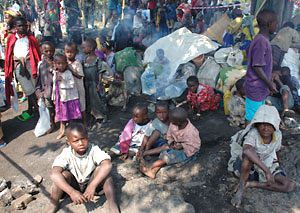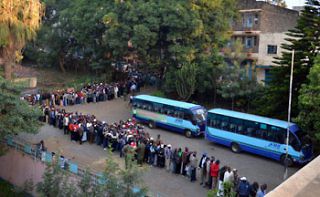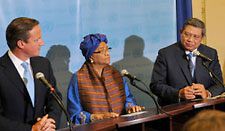Discussions at the UN General Assembly on replacing the MDGs laid down the gauntlet for achieving consensus by 2015.
Tag: general assembly
-
-
The new Iranian president is obviously trusted and respected by the Supreme Leader, and his five-day trip to New York broke new ground for US-Iran relations.
-
A revised “Uniting for Peace” procedure provides a way out of the Security Council’s deadlock on Syria.
-
When the current Russian foreign minister Sergei Lavrov was the United Nations ambassador, he “never suffered fools,” said Edie Lederer, the Associated Press chief correspondent at the United Nations. Ms. Lederer said, “you could often find him standing at the bar chatting on his cellphone and talking to people, ordinary people. But when it came […]
-
Bilateral meetings are the real benefit for leaders attending the GA; and for the speeches, all eyes will be on Iran’s President Hassan Rouhani.
-
A mechanism that could be quickly employed to prevent Bashir’s attempts to circumvent the ICC is a travel ban under the ongoing sanctions regime against the Sudan.
-
Human security could be the basis of a more comprehensive and long-lasting framework for the post-2015 MDGs.
-
While its membership includes many authoritarian states, the commitment to advancing democracy is at the very heart of the UN mission and all that it stands for.
-
In putting peace squarely on the post-2015 development agenda, a historical wrong has finally been corrected.
-
The historic treaty will only be as strong as the states that back it.

